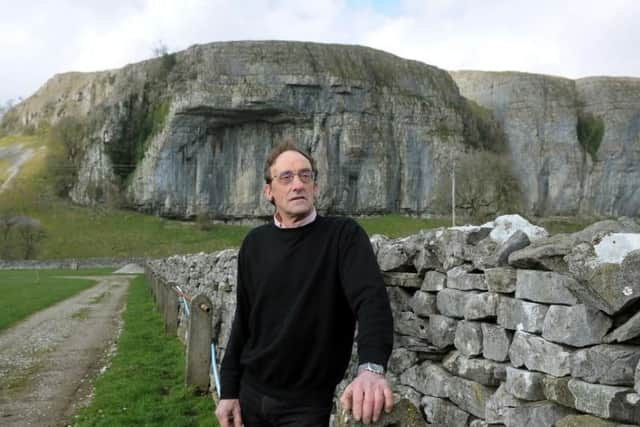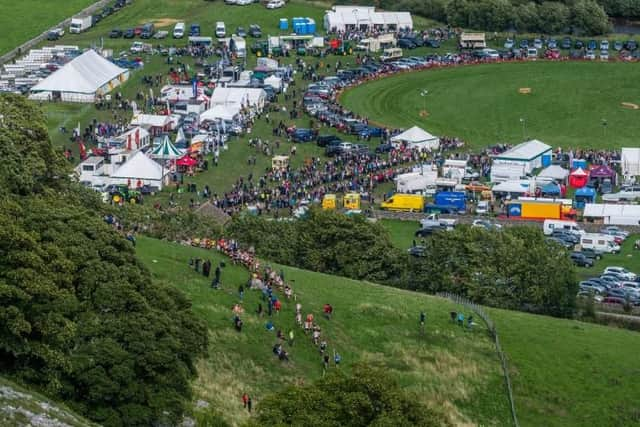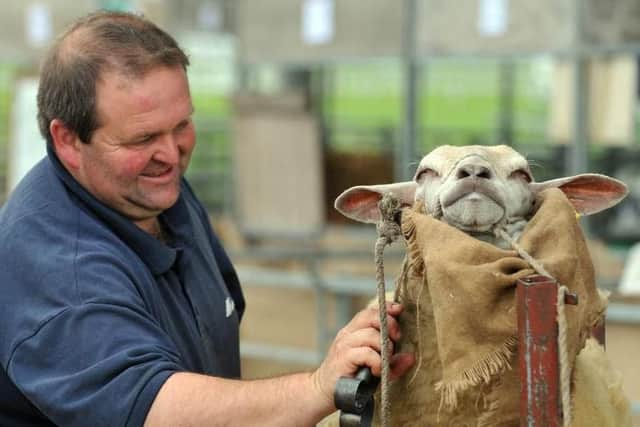Future of agricultural shows in Yorkshire Dales at mercy of pressures facing next generation of farmers


Annual agricultural shows have been held in the Dales since at least the reign of Queen Victoria but the families whose involvement drives them on are not immune from a perfect storm of social and economic factors that are forcing working-age families out of the park.
Show officials warn that dire market returns and house prices that outstrip average wages many times over are scuppering agricultural aspirations, forcing young people to move out and leaving a shrinking pool of families to contribute to local shows.
Advertisement
Hide AdAdvertisement
Hide AdAs documented by The Yorkshire Post in its week-long series of special reports into the challenges facing communities in the Dales, there is a severe population imbalance in the National Park. Some 26 per cent of residents are aged over 65 and just 15 per cent are aged under 15.


Fourth generation farmer Robert Lambert, 67, of Mile House Farm near Kettlewell, has been chairman of the Upper Wharfedale Agricultural Society for 18 years and steps down in the coming months, ahead of the next edition of its flagship event, Kilnsey Show and Sports, on August 28.
“There has been an exodus of farming families from the area,” Mr Lambert said. “One or two of the next generation have stopped at home but the rest have moved on because they haven’t been able to find housing.
“If the family farm can’t provide work that pays, they can’t afford somewhere to live.”
Advertisement
Hide AdAdvertisement
Hide AdPoor market returns for sheep and sheepmeat - the dominant trade of upland Dales farms - mean that many local farmers rely on income from diversification into the likes of tourism and on-farm retail, but even more so on farm support payments.


“We are getting less and less for our product so you can’t employ anyone on a reasonable wage,” Mr Lambert said.
“Some of the dry stone walls are sinking into the ground and collapsing. In years to come they are at risk of becoming derelict because it won’t be viable for farmers to have them repaired.”
Mr Lambert harbours concerns for Kilnsey Show’s long-term future - an event which has been held since 1897 - but he believes its ageing committee can draw on enough support for the popular event to remain a fixture for some time to come.
Advertisement
Hide AdAdvertisement
Hide Ad“The average age on the committee is about 60 but there seems to be a generation coming into their 20s now who are getting involved. I’m positive about its future but I can see problems if market returns and the housing situation does not improve.”


At Leyburn, organisers of Wensleydale Show, which will be held for the 105th year on August 24, are being proactive to secure the future of their annual showpiece.
Kenton Foster, 49, the show’s newly elected chairman, said: “We have an ageing committee, we’re worried about new generations coming through and being part of the show, and that is why we are trying to do something about it.
“We have started to use our profits to offer bursaries of up to £1,000 to four young people a year to help them study at agricultural colleges but so far this year we’ve had one application.”
Advertisement
Hide AdAdvertisement
Hide AdMr Foster, who farms a tenanted smallholding at Garriston with his parents Richard and Freda and works as a grader of lambs for retailers, said new generations have no chance of competing for farmland when large established farms can outbid smaller existing enterprises by up to £50 per acre.
Nonetheless, young handler classes remain popular at Wensleydale Show which attracts more than 6,000 visitors a year, Mr Foster said, while young committee members will soon be given the chance to shadow show stewards to encourage them to continue playing their part.
FUNDAMENTAL PRESSURES
Lambs bred in the Dales are not commanding fair prices for farmers, Wensleydale farmer Kenton Foster said.
“Supermarkets are getting far too much clout, demanding more and then dropping you. Export lambs are making good enough prices, it’s the English lambs that are struggling.”
Advertisement
Hide AdAdvertisement
Hide AdKilnsey Show’s Robert Lambert said farms cannot survive without support.
“Dales farmers are reliant on subsidies, we aren’t making a profit at all,” he said.
“At the same time, environmental schemes get harder to get into. I’ve been in one on Kettlewell moor and now they want £4,000 up front to pay for blocking ditches and regenerating moorland.”